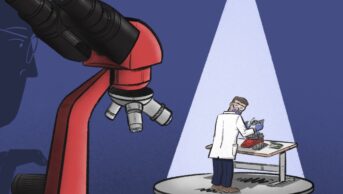
Clara Molden/PA Archive/PA Images
A legal campaign group has said pharmacists are “unqualified” to dispense alternative medicines during shortages in line with a government-issued protocol.
The Good Law Project, which launched its campaign for a judicial review of serious shortage protocol legislation in February 2019, has appealed the High Court’s decision to refuse permission for a judicial review to go ahead.
In its skeleton argument document, submitted to the Court of Appeal for a hearing on 10 May 2019, The Good Law project said the legislation allowing pharmacists to follow a government protocol to supply a different medicine to the one prescribed during a shortage “poses obvious dangers” to patients as pharmacists are “not qualified properly to assess” patients before dispensing.
It said that the legislation, which came into force on 9 February 2019, “allows an existing clinical judgment made by qualified persons (doctors and other properly qualified professional persons) to be substituted or interfered with by an unqualified person (a pharmacist)”.
The argument continued that “each and every pharmacist may supply a prescription-only medicine to a patient they know little or nothing about, do not have the means to assess and are not qualified properly to assess”.
However, Sir Stephen Richards, former Lord Justice of Appeal, recommended rejecting the appeal in his concluding remarks at the hearing on 10 May 2019, saying a judicial review “would have no real prospect of success and permission for appeal should for that reason be refused”.
He added that The Good Law Project’s arguments were “unarguable” and “not at all persuasive”.
“Where there is a prescription that the pharmacist, for whatever reason, sells the patient a different medicine, parliament must have intended that to be a salient pursuance of prescription,” he explained.
“Parliament cannot have had in contemplation, or have intended to authorise, an instrument interposing itself between the doctor’s prescription and the pharmacist’s sale rendering the prescription a dead letter, rendering irrelevant the professional opinion of the patient’s doctor as to what alternative medicine should have been prescribed.”
In a statement published after the hearing, the Good Law Project said this litigation was now “at an end”.
“Good Law Project made the decision to bring this case having had the benefit of advice from the leading practitioners and academics in the field,” the statement went on.
“The Court of Appeal agreed that it raised important public interest issues.”
Under the new legislation the government can now issue protocols asking pharmacists to respond to a medicines shortage in one of four ways: to dispense a reduced quantity, a therapeutic equivalent, a generic equivalent or an alternative dosage form of the drug, without having consulted with a patient’s GP.


